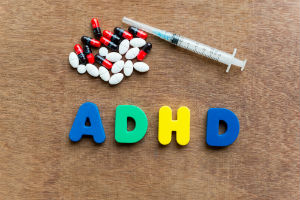|
Sunday, April 5, 2015
Does ADHD Exist?
Friday, April 3, 2015
9 Facts Everyone Should Know About Vitamin D
|
Thursday, April 2, 2015
I want to make you lunch - are you in?
Many of you are upset about what's happening in the food industry and I don't blame you.
Upon reading my investigations and finding out the truth, you say:
"Tell me what I can eat!"
"That's my favorite brand – oh no!"
"I was addicted to that!?"
"I just fed that <insert product> to my child this morning – what am I suppose to do now?"
Well, I have a solution and I want to make sure you know about it!
The only person who can control your health is you. I didn't understand this growing up. Instead, I believed what everyone else around me was telling me. I looked up to several authoritative figures, organizations and companies and blindly followed them as many people do today.
If you've heard my story, you know I suffered a myriad of health issues that inspired me to investigate the food I was eating.
When I was little, I was a very sick child. I had stomach issues, eczema in every crease of my body, asthma, allergies and was totally out of shape – I couldn't do one sit up. (I'm not kidding!).
Right after a health crisis in my early 20's, the first thing I wanted to do was lose weight and look better. I was over 30 pounds heavier and felt terrible.
The food industry and organizations like "Weight Watchers" told me I could eat anything I wanted as long as I checked the calories or points and fat grams. I followed their advice and found myself always in a struggle to maintain my weight. The advice left me with no energy and feeling hungry all the time.
I outsourced my meals to restaurants like Subway that told me I would "eat fresh" and lose weight like Jared if I ordered their sandwiches. I believed them and so many other restaurant chains that were serving me industrial chemicals instead of real food.
For so long, I looked to everyone else for answers. I didn't know that everything I believed for most of my life would be turned upside down once I started to investigate this for myself.
My biggest lesson learned during all of this discovery has been:
I cannot outsource my health or my food.
As a result, I started to learn how to cook and how to prepare my own food as much as possible - and this how The Food Babe Eating Guide was born.
I created this membership, so you could join too.
It can be simple. All it takes is a little planning and action.
I put all the tools, secrets and strategies that have helped me go from someone who used to struggle to eat healthy food to someone who now finds it a breeze in the Food Babe Eating Guide Program.
If you sign up to be a member before Wednesday, April 8th, you'll also get a 40-page bonus guide for on-the-go lunch recipes that you will love completely FREE!
Hope you have a wonderful weekend!
Vani
P.S. You can start today! You get access to this downloadable program minutes after you sign up :)
If you would like to stop receiving free food investigations, recipes and healthy living tips, click here.
Do You Know These 6 Causes of ADHD?
|
Wednesday, April 1, 2015
Are you watching your weight?
If you are watching your weight, whatever you do, don't eat this for lunch!
I've fallen for their tricks before and that's why I had to investigate this billion dollar brand that has hopes for you losing weight, but instead just keeps you in a never-ending cycle of yo-yo dieting.
Read the brand new post here: http://foodbabe.com/2015/04/01/watching-your-weight/
I'm counting on you to spread the word!
Xo,
Vani
If you would like to stop receiving free food investigations, recipes and healthy living tips, click here.
6 Benefits of Shilajit for Men
|




